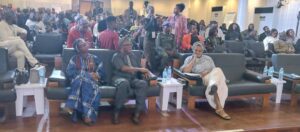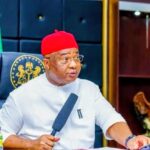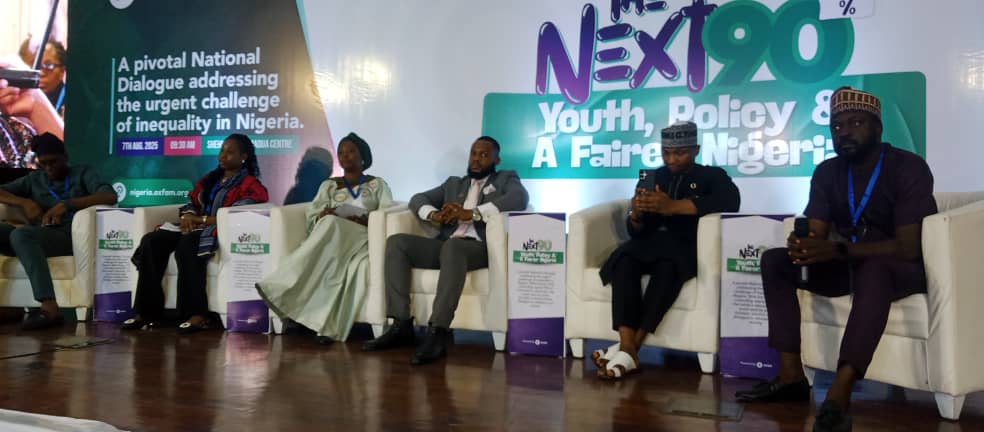By Felicia Imohimi
Oxfam has called for progressive labour reforms, including a higher national minimum wage and policies that promote decent work, to help curb growing inequality in Nigeria.
John Makina, Oxfam Country Director in Nigeria, made the call in Abuja, at “A Pivotal National Dialogue on Addressing the Urgent Challenge of Inequality in Nigeria.”

The event was themed “The Next 90 per cent: Youth, Policy and a Fairer Nigeria.”
Makina stressed that as 65 per cent of Nigeria’s workforce operated in the informal economy, there was an urgent need to formalise the businesses by improving access to credit, training, and social protection.
“Formalisation and support for small businesses through simplified registration, tax incentives, training, and credit access can reduce vulnerable employment, which affects more than 55 per cent of Nigerian youths,” he said.
He also called for dismantling monopolies that stifled job creation, competition, and innovation, adding that tackling inequality required deliberate policy decisions.
“We must break up monopolies that stifle competition and promote economic growth through inclusive job creation,” he added.
Makina advised that urgent action was needed to address the severe concentration of wealth in Nigeria.
“This inequality limits access to education, healthcare, land ownership, especially for women, and other essential services.
“For example, women who work hard on our farmlands own only 13 per cent of the land. This is the reality holding our country back,” he said.
He emphasised that inequality was not natural but a result of deliberate policy choices, power dynamics, and entrenched interests.
He called for a new era of public action including stronger public services, corporate regulation, wealth and excess profit taxes, and youth inclusion in governance.
“Young people must have a seat at the table. Their inclusion is a strategic move for national peace, economic innovation, and shared prosperity,” Makina said.
The dialogue brought together youth leaders, policymakers, women’s groups, and civil society organisations to push for a fairer and more just Nigeria.
Also speaking, Hamzat Lawal, CEO of Connected Development (CODE) and Oxfam’s International Inequality Champion, said reducing inequality must start at the grassroots.
He called for full implementation of the Supreme Court judgment on local government autonomy, including the abolition of joint state-local government accounts.
“If local governments receive their allocations directly, we can reduce inequality and invest more in human capital.
“Local government officials do not have immunity, and anti-corruption agencies can ensure proper use of funds,” Lawal said.
Rukaiya El-Rufai, Special Adviser to the President on the National Economic Council (NEC) and Climate Change, added that tackling inequality required equal opportunity, education, access to healthcare, and progressive tax reforms.
“Investing in human capital and creating platforms for social mobility are essential. That’s how we build a more equitable Nigeria,” she said. (NAN)(www.nannews.ng)
Edited by Abiemwense Moru












